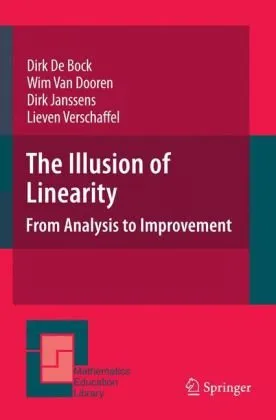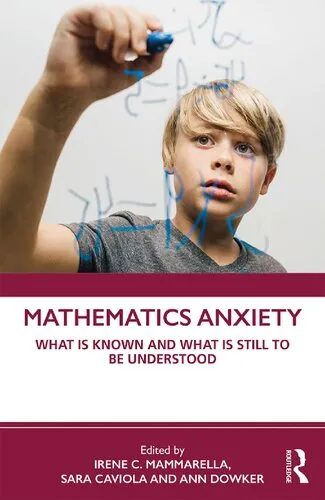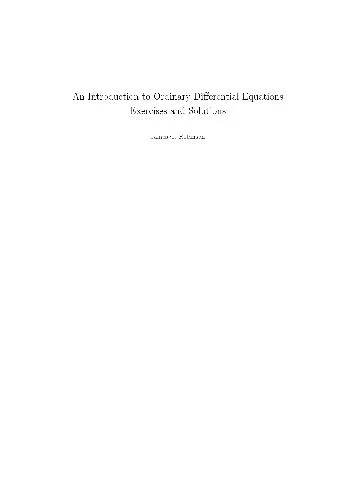Illusion of Linearity: From Analysis to Improvement
4.4
Reviews from our users

You Can Ask your questions from this book's AI after Login
Each download or ask from book AI costs 2 points. To earn more free points, please visit the Points Guide Page and complete some valuable actions.Related Refrences:
Introduction
Welcome to "Illusion of Linearity: From Analysis to Improvement," a comprehensive exploration of one of the most pervasive misconceptions in mathematical education and cognition. This book is designed not only to diagnose the persistent over-reliance on linear models in various domains but also to present strategies for educators and learners to overcome this cognitive bias.
Detailed Summary of the Book
In "Illusion of Linearity: From Analysis to Improvement," we delve into the concept of the linearity illusion, which manifests itself when individuals, both students and adults, consistently over-apply linear reasoning and models even when inappropriate. This book starts with a detailed analytical approach to understanding why linearity holds such a strong psychological sway over learners’ minds. We examine the roots of this phenomenon through empirical studies, educational psychology analyses, and cognitive development perspectives.
Our treatment of this subject is multi-faceted: we begin with foundational concepts and definitions, distinguishing between legitimate instances of linear relationships and the seductive error of perceiving linearity where it doesn't exist. The book progresses to:
- Identify common instances and misconceptions in mathematics education.
- Illustrate real-world examples where this fallacy impacts decision-making.
- Probe into the educational contexts reinforcing these misconceptions.
Key Takeaways
By reading this book, you will primarily gain an understanding of the following key areas:
- Psychological Insights: Learn why the tendency to default to linear assumptions is deeply rooted in human cognition.
- Educational Implications: Discover how traditional educational practices inadvertently nurture the illusion of linearity.
- Practical Interventions: Implement tools and strategies to develop a more nuanced understanding of non-linear dynamics.
- Transfer of Learning: Explore how to encourage transfer of non-linear thought processes into real-world applications.
Famous Quotes from the Book
"The simplicity of linearity charms the mind, but genuine understanding demands the courage to venture beyond its confines."
"In education, we must nurture discernment over default assumptions, preparing learners to embrace complexity with curiosity."
Why This Book Matters
Despite advances in educational methodologies and cognitive sciences, the illusion of linearity remains a significant barrier to deeper scientific understanding, innovation, and critical thinking. This book is vital because it addresses a gap in the educational landscape—ushering in a paradigm shift that emphasizes non-linear thinking and adaptive problem-solving. It is crucial not only for educators who aim to refine their teaching practices but also for learners who desire to navigate the complexities of both academic subjects and real-world challenges effectively.
By equipping readers with tools and strategies to recognize and dismantle this illusion, "Illusion of Linearity: From Analysis to Improvement" serves as both an educational guide and a call to action for fostering a more robust and adaptive mindset across diverse areas of life and study.
Free Direct Download
You Can Download this book after Login
Accessing books through legal platforms and public libraries not only supports the rights of authors and publishers but also contributes to the sustainability of reading culture. Before downloading, please take a moment to consider these options.
Find this book on other platforms:
WorldCat helps you find books in libraries worldwide.
See ratings, reviews, and discussions on Goodreads.
Find and buy rare or used books on AbeBooks.
1337
بازدید4.4
امتیاز0
نظر98%
رضایتReviews:
4.4
Based on 0 users review
Questions & Answers
Ask questions about this book or help others by answering
No questions yet. Be the first to ask!
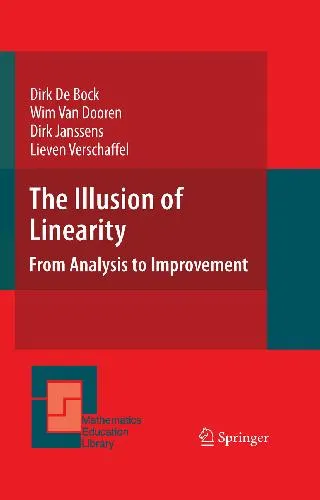



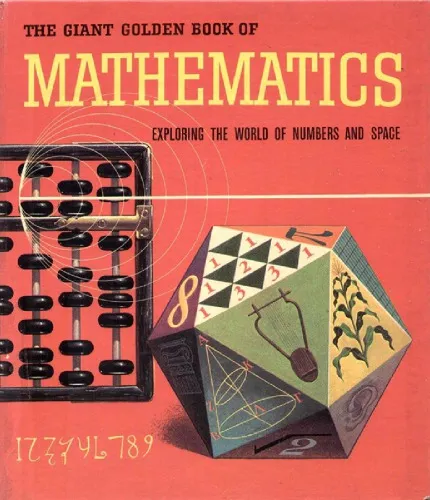
![The Mathematical Experience [Study Edn.]](https://s3.refhub.ir/images/thumb/The_Mathematical_Experience__Study_Edn_16194.webp)
